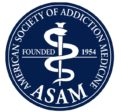What is a 12 Step Program?
During addiction recovery, be it for alcohol or drugs, a primary form of substance abuse treatment is a 12 Step Program. Known usually as Alcoholics or Narcotics Anonymous, 12 Step Programs are highly recommended as a supplemental support system to go alongside group therapy and one-on-one therapy. This form of treatment is a spiritual approach to healing. While some 12 Step Approaches attempt to keep themselves non-religion focused, they do still incorporate and teach of the power of prayer and of faith.
The first 12 Step Program was started in the 1930s when they were published in the Big Book, called “Alcoholics Anonymous: The Story of How More Than One Hundred Men Have Recovered from Alcoholism”. The Steps are designed to build on each other throughout the process of recovery.
The 12 Steps as written are:
Taken from Alcohol.org, the 12 Steps of recovery are as follows:
- We admitted we were powerless over addiction—that our lives had become unmanageable.
- Came to believe that a Power greater than ourselves could restore us to sanity.
- Made a decision to turn our will and our lives over to the care of God as we understood Him.
- Made a searching and fearless moral inventory of ourselves.
- Admitted to God, to ourselves, and to another human being the exact nature of our wrongs.
- Were entirely ready to have God remove all these defects of character.
- Humbly asked Him to remove our shortcomings.
- Made a list of all persons we had harmed, and became willing to make amends to them all.
- Made direct amends to such people wherever possible, except when to do so would injure them or others.
- Continued to take personal inventory and when we were wrong promptly admitted it.
- Sought through prayer and meditation to improve our conscious contact with God, as we understood Him, praying only for knowledge of His will for us and the power to carry that out.
- Having had a spiritual awakening as the result of these Steps, we tried to carry this message to alcoholics, and to practice these principles in all our affairs.
What is Step 3 and Why is it Important?
Step 3 of the program is one of the most powerful, and important because it is in fact, a decision. Not just any decision, but a lifelong decision that men and women in the program must make to determine how they are going to continue with their sobriety. During Step 3, the person in recovery has determined that alone, they will not be enough to overcome their addictions and so they will seek the spiritual aid and strength of a higher power. In doing so, they have stated that they put their lives in the hand of God as he is understood, so that they may find peace and strength for sobriety and wellbeing.
While other steps of the program may include a choice, Step 3 is an ongoing, life changing decision that must be maintained and fully embraced.
What are the spiritual principles of Step 3?
The 12 Steps are rooted in spiritualism and belief. Throughout the Steps, each builds on the other in terms of principles to create a fully functioning guide to spiritual healing. In the second Step, the program introduces the concept of a Power Greater Than Ourselves – typically God. It suggests that the program members must rely on this power to restore their sanity. From there, as one moves into Step 3, there are multiple principles that build together to form a truly spiritual bond with a higher power that can be addressed for healing.
Faith
The first principle in Step 3 is faith. The power of faith begins to reveal itself in Step 2, but really shines in Step 3, where you fully immerse yourself into it. By Step 3, the hope is that the obsession with substance abuse has begun to lift. You can see through the fog and realize that you want to live your life without drugs or alcohol. The faith component comes into play as you believe that it was a Higher Power who aided in removing the disease of addiction and who gave you strength. By now vowing to put your will and life into the hands of this power, you have made the spiritual decision that you will follow your Higher Power in thought and action. Obsession or compulsions are not the will of God. So with the spiritual principle of faith, you must make the decision to have faith which takes …
Trust
Trust is a major principle that goes hand in hand with faith. It takes trust not only in yourself and your own strength but in the will and strength of God as you understand them. You almost must trust that a life of sobriety is the one that you are seeking. Trust that your body will heal physically from removing substance abuse. You should also trust that your mind and emotions will heal by clarity and improved relationships with loved ones. Finally, you must trust that your spiritual health will find new heights as you build your relationship with the divine.
Hope
The principle of Hope is built on again from Steps 1 and 2. You must have the hope that you can get better, and that through a combination of divine strength and your own determination, you will retake your life. What is it that you hope for most in your new sober life? Is it to rekindle your relationships with family or loved ones? To find a satisfying job or comfortable living situation? Or perhaps you simply hope for health and happiness. In order to turn hopes into reality, you require…
Willingness
The willingness to change! You must also be willing to let your thoughts and actions be governed by a Higher Power. You must be willing to ask for strength, to pray for forgiveness and to meditate on healing. One of the great benefits of the 12 Step Program, is that so many of the spiritual principles continue with you and grow. Being willing to shed your addictions, obsessions and compulsions and live a life dedicated to spiritual growth, healing and free of drugs or alcohol is an enormous decision to make, but one that will change your life for the better.
Surrender
Surrendering your thoughts, will and actions to God as you know him is prevalent throughout all of the 12 Steps. In Step 3, you must reaffirm your spiritual surrender to your Higher Power. This is your way of telling yourself that your future and healing is in His hands and will lead you down the path of healing. By believing in this surrender, you have made another decision. This decision is to have faith that you have put yourself in the safest hands.
Spiritual Commitment
The final spiritual principle is where you tie it all together. You must maintain the commitment that you will trust your faith. You will remain willing to surrender. You must be committed to God as you know them, but also to yourself and your well-being. Change cannot happen on its own. Giving up an addiction is one of the hardest things that any man or woman can do, but with commitment to your faith and to yourself, you will find the strength you need to live the life you always wanted.
Reach Out
If you or a loved one has a dependency or addiction to any substance, please reach out to us about your detox and treatment options. Royal Life Centers admissions staff is available 24/7 to answer your questions and address your concerns. We can be reached at (877)-RECOVERY or 877-732-6837. Because We Care.












